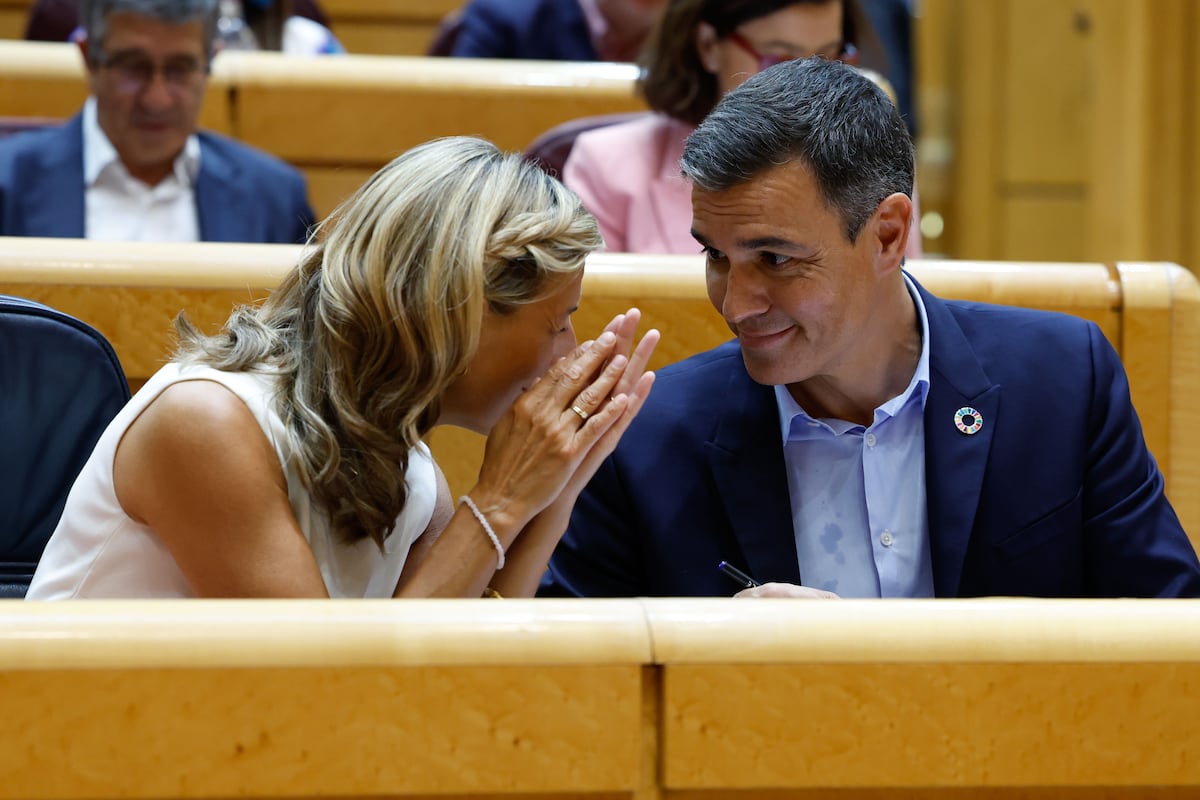There is no interlocutor or political analyst who harbors doubts about the approval of the last General State Budgets of the legislature, corresponding to 2023. This certainty is based on the fact that with the Accounts of the two previous years, the actors who must carry out the negotiations to a good term—whether coalition partners or external ones—have always backed off the edge and even before the precipice and there has been no falling off.
There is a will to agree, deep, but as great as the enormous size of the stumbling blocks.
To demonstrate the first, the desire to agree, the negotiators have decided to separate what most confronts them in order to move forward.
Housing issues will be separated from the rest of the budget negotiation.
More information
The PSOE entrusts itself to its management
The confrontation over mortgages and rents between the PSOE and United We Can is as strong as it seems, as the leader of Podemos and Minister of Social Rights Ione Belarra exhibited last Friday.
UP says that the Government must act by law against the increase in rents and mortgages subscribed to variable interest rates.
The instant rejection of the socialist party to that demand is justified by the offense that would occur with the citizens who signed theirs at a fixed rate.
Not wanting to break up does not mean that United We Can is going to change its uses as a partner: the disagreements are made public, and, in addition, it translates them into parliamentary initiatives.
This has just been done through a bill that is intended to suspend any increase in variable mortgages for one year.
Also,
the left-wing formation presents a panoply of protection measures for the most vulnerable, which touches rents, to limit increases as well as evictions.
Apart from housing issues, the test has been made with the items for Defense.
The increase in military spending, which UP rejects, will go the way of maintaining jobs in companies dedicated to material for the armies.
On both sides of the coalition, there is full awareness of the pressing needs that affect the middle and working classes, as mentioned dozens of times a day by the socialist members of the Executive, but not only.
There are other classes that are very far from being able to enter the mortgage market.
This time it has not been UP, but the President of the Government, Pedro Sánchez, who has echoed the serious shortcomings of primary health care.
On Friday he announced the approval, tomorrow at the Council of Ministers, of an item of 172 million euros.
The framework to tell it was Zaragoza before all the territorial power of his party, connoisseurs and sufferers of the problem.
That money will be transferred to the communities, health managers.
The socialist presidents will be examined on the last Sunday of May, and everything is little.
Social policies are at the forefront of concerns because since the pandemic, and with runaway inflation, the most basic deficiencies are emerging.
Nursing homes and aid for dependency, with their vast casuistry, are at the heart of the discussion of the State Budgets.
The situation is very delicate and the ambition must be maximum.
This speech is heard on both sides of the coalition government.
Priorities are piling up.
The Minister of Finance, María Jesús Montero, is aware of this when she listens to Josep Vendrell and Nacho Álvarez, negotiators on behalf of UP, in their high-frequency meetings.
The first is the chief of staff of the second vice president, Yolanda Díaz, with extensive institutional and parliamentary experience in Catalonia and Madrid.
Nacho Álvarez, an economist, is Secretary of State for the Ministry of Social Rights, which Belarra directs.
Thus, both Díaz and Belarra are at the end of each negotiating move.
This co-responsibility is fundamental, given that the sparks between Diaz and Podemos occur both in full view and in more private settings.
In Andalusia, the coalition for the last elections, which was reached abruptly, has been blown up.
At the national level, the intention is to act as a block in the negotiation with the socialist party, although the nuances and intensity of the demand are guaranteed.
Not all the ministers of the socialist part accept the unilateral proposals of the UP in the same way.
The second vice president's idea of agreeing with the food distributors for 30-euro baskets has left the circle of scandal to delve into the possibilities of making it viable, always at the discretion of private initiative.
Although Díaz's defenders remain that he opens useful debate for society, in the Government it is added that the president will always have the last word and will be the one who decides the news.
Now, he is in the great battle to make the limitation of the extra benefits of energy companies a reality throughout Europe;
the road is becoming more and more paved.
At home, the PP seems convinced that this is the line and tries to launch other debates, such as the demand for an income agreement.
Subscribe to continue reading
read without limits
Keep reading
I'm already a subscriber

